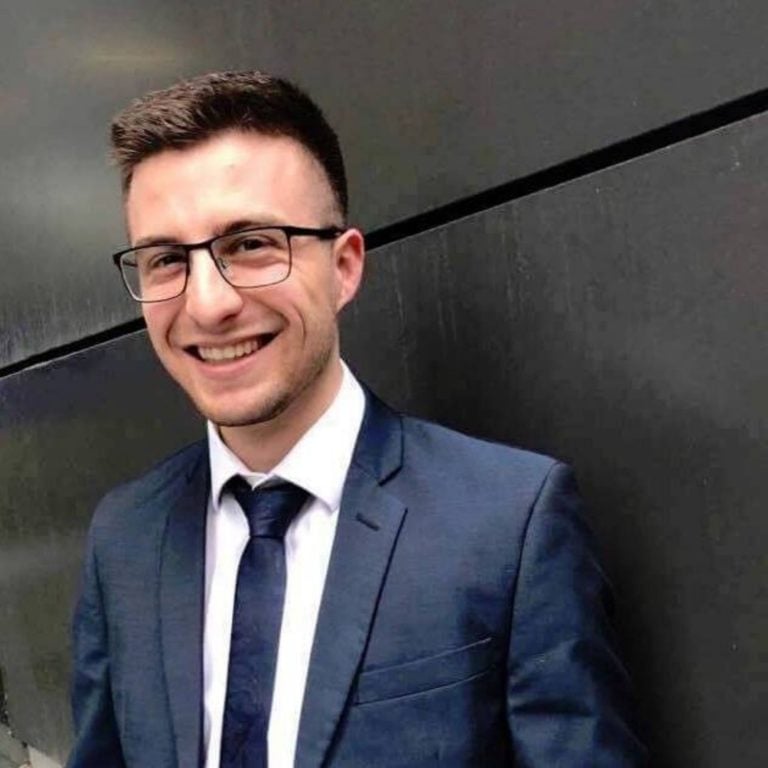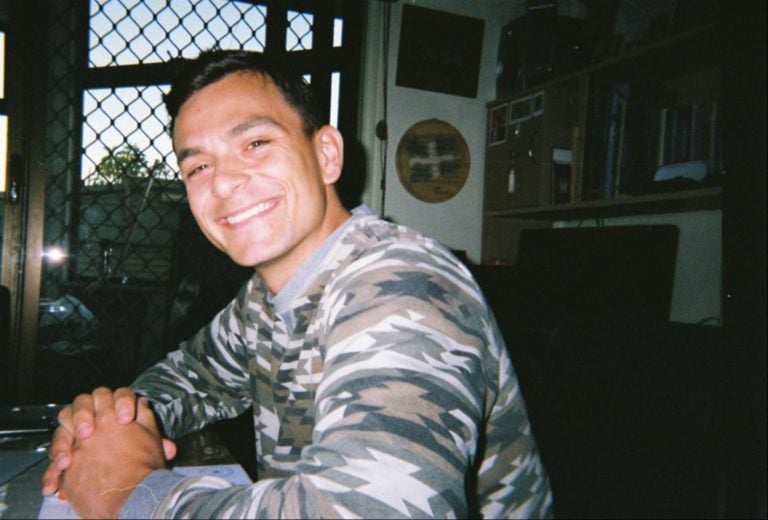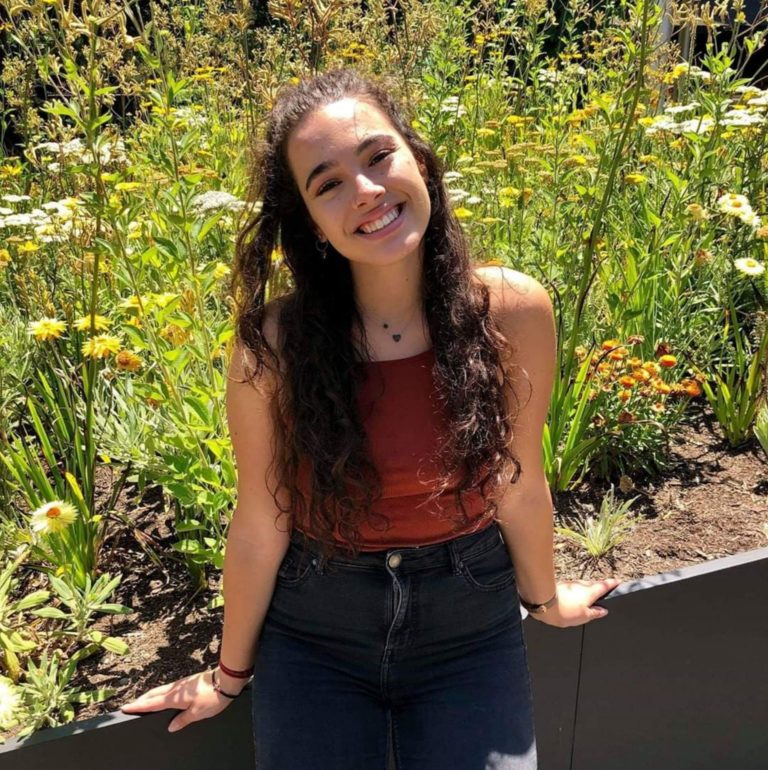Older diasporans are concerned that the Greek language, culture and identity will slowly dissipate as they die out. But they’re wrong. The younger generation are ready to take the reigns in their own right and in their own way.
They love their heritage, but they view it as a living, growing part of themselves rather than a museum piece to be observed. Proud Greeks and successful, we have nothing to worry about because the future is in good hands.
We reached out to these young voices and asked: What do you think can be done to help young Greeks in Australia retain their Greek heritage?
Here’s what they said.
VASILIS BERBATAKIS
It is in the blood of a Greek to be passionate. It is important that we then revitalise our linguistic capabilities to leverage on passion. This in turn has to be a committed focus on improving our Greek through constant and correct usage.
There are many avenues that will create a valuable experience that Greeks can benefit from through fluency of our mother tongue. One such way is to create routine. Accessibility is merely a symptom and not a root cause for its lack of usage. The lack of routined commitment is what has led for our modern use of Greek in Australia to wither.
Routine is hard to establish but the incorporation of Greek in our everyday life at home will serve its practicality and with such use comes repetition. Hence, a small change now enacts a collective effort of improving your fluency.
Importantly, the Greek community has done very well recently to welcome and learn the advent of digitalisation. Villages in Greece are connecting with Hellenes all over the world sharing stories, photographs and the like of their memories in the 1960’s and beyond as they reconnect. This digitalisation is exceptional at providing literature and music. The key here is to get Greeks in Australia to connect and utilise these offerings to their full fruition.
However, the wider Greek community needs encouragement from its leaders and a major focus on active community reach needs to actively engage in areas of passion. Greek usage can be found extensively around a large family gathering, at the local Greek football team, at community and dancing groups alike and as such, we need to encourage Greeks in Australia to connect with these different communities where our passion lives.
Vasilios Berbatakis is involved in the Cretan Brotherhood Youth of Melbourne and Australia.

READ MORE:Greek Australian students receive Premier’s VCE Awards
FOTIOS TSIOUKLAS
Maintaining Greek heritage extends well beyond simply being born Greek, having a Greek lineage or by surrounding yourself with Greek people.
I believe that Greek heritage can be broken down into three key factors: language, culture and values.
In order for these factors to co-exist within future generations, we as a community must prioritise on keeping them alive. Up until this point, I believe we have done this quite well.
When you look at other nationalities which migrated in the 50s and 60s, not many 3rd generation kids share the same level of patriotism as do those who are of Greek background. This is evident in the large turnouts we have at Greek events (Antipodes, church etc.) where everybody in Melbourne knows the latest Greek music, eats Greek food and often speaks in Greek amongst group environments.
However, it is essential that my generation passes on these rituals to their children to instil the same level of patriotism in the next generation of Greek youth. Without the passing down of the three factors outlined above, we are vulnerable to full assimilation, ultimately resulting in complete erasing of our culture as we know it.
To achieve this I would like to suggest a few key activities for my generation. These can be undertaken even if they themselves don’t speak Greek or aren’t heavily engaged with our culture at present.
Firstly, they should continue to follow Greek traditions which have been passed on from their parents or grandparents. Rituals like going to church during Easter, attending Greek festivals as often as possible and celebrating name-days. Furthermore, spending time to learn the background and significance of these events in our culture will instil a strong level of patriotism.
Secondly, they should ensure their children are constantly surrounded by all things Greek. Education doesn’t necessarily simply mean going to Greek school. It can mean listening to Greek music in the car, watching Greek movies or documentaries once a month with family, speaking Greek as much as possible or even a yearly trip to Greece! Consider a weekly traditional Greek recipe with the family for dinner as another way to reinforce Greek culture in a fun and interactive way.
Thirdly, sending their children to Greek school from the age of 5. Whilst we have seen a significant drop in children doing Greek school through to year 12, I strongly believe that children who attend Greek school even for a few years during early formative years in their education have come out a more strongly connected to their heritage than those who have entirely bypassed Greek school.
Whilst it is highly desirable for students to progress to study Greek in VCE – there is far more to this world than your ATAR score. Being a well-rounded, cultured and connected person is just as important and should be everybody’s ultimate goal. These are qualities I personally felt develop and evolve within me throughout my years at Greek school.
Even in the professional world, I’ve observed that I am treated with a lot more respect by Greek people due to my relatively deep understanding of our language and culture which has helped tremendously in networking and growing my businesses. Positive behaviours such as these reinforces my view on the value of education in defining and maintaining our Greek heritage.
With that in mind, first and foremost, we must remind our future generations of their lineage. We must reinforce the message to them from a young age that THEY ARE OF GREEK BACKGOUND, ensure they NEVER forget their heritage and remain immensely proud of this for decades to come!
Fotios Tsiouklas is one of Australia’s youngest tech entrepreneurs and influencers. Among his many achievements, last year he created a Greek language teaching app – Metropolis.
READ MORE: Fotios Tsiouklas: taking the digital world by storm at 16

DEAN KOTSIANIS
As a young Greek Australian who is particularly invested in community, I believe that engaging new faces and encouraging new synergisms is an important, yet difficult, priority. We’ve seen that many young Greeks remain indifferent to what happens in the “Greek world”. And so, our aim as a community is to draw interest to novel and exciting Greek cultural items and ideas, making these integral to their lives … and not just for Greeks I might add. We could start by better exploring the cultural elements that the world adores and that are underrepresented in our community through the arts, the theatre and everything in between.
A shortcoming that we often fall victim to is also the idea that the Greek community is equipped and prepared to welcome everyone, especially youth! There may be a plethora of Greek cultural items waiting to be explored, but there is work to be done before our space is open to collaboration, experimentation and guided discovery for youth. Running projects is hard. An area is needed in order to engage creativity, entertain possibilities, guide and mentor willing contributors into new opportunities to make this process easier. Actually… we may have something for that…
If we can set someone’s journey in motion, the possibilities are endless and unimaginable.
Dean Kotsianis is a doctor of Medicine student at the University of Melbourne and the former President of NUGAS.
READ MORE: NUGAS elect new committee in online annual general meeting

THEODOULA VORENAS
Cultural retention is extremely significant in order for a community to continue having influence in the future. So as to achieve a future where young Greek Australians are able to retain their Greek heritage, I believe that Greek schools should look to review their way of operation. To maintain the interest of students, Greek schools should not merely rely on teaching grammar and comprehension as a means of sustaining Greek language and culture. Rather, they should look to extend the curriculum to explore ways that can further expose students to their Greek roots.
Such extensions of the curriculum could include the requirement of students to develop their culinary skills in Greek cuisine or even the requirement of analysing ancient Greek history. Students should also be encouraged to embrace traditional Greek dance and music.
Additionally, by advertising Greek festivals and events in a way that appeals to youth, young Greek Australians are able to liaise with one another. Together, they are able to continue attending these events and strengthen their exposure to Hellenism. If the organisation of these festivals and events continues, as well as the implementation of alternative approaches in schools, the Greek community is likely to remain robust for many generations.
Theodoula Vorenas is a Law Student who created a Youtube channel to help VCE students.
READ MORE: Uni student Theodoula Vorenas creates Youtube videos to assist VCE Students during COVID-19 Pandemic

OLYMPIA NELSON
Retaining your Greek heritage can be a challenge. On the one hand, you risk being a ‘try hard Greek’ and on the other not a ‘true Greek’ because you don’t speak the language, or because you do not attend church. This creates tension and a sense of I’m-more-Greek-than you because-I-do-Greek-things-and-you-don’t, which is alienating. Everyone has a different background; and when you feel uniquely Greek it can be for different reasons, from love of zeibekiko to frappedes. It might be an affection for the hwrio or joining the Greek club at uni or a dance group.
For me, upholding my Greek heritage means sustaining language, music, dance and food. But you don’t have to approach them academically. I’d encourage immersion into Greek the easy-going way; perhaps watching Easy Greek on YouTube to enjoy the many idiosyncrasies of the Greek language, getting in contact with family in Greece even remotly, reading forums on Greek WordReference or watching Akis Petretzikis the chef. We mustn’t approach Greek culture as a competition but instead with halara, ipomoni, letting Greek charisma develop with hilarity and love. Taking the sense of obligation out of it enables you to reach the beauty, humour and the kefi of Greek culture.
Olympia Nelson, daughter of the late photographer Polixeni Papapetrou, is a budding artist in her own right.
 READ MORE: Polyxeni Papapetrou talks to Neos Kosmos
READ MORE: Polyxeni Papapetrou talks to Neos Kosmos
ELENI NZIFAS
This question has consistently been raised and is something I have contemplated for a long time and what is most difficult about it, is that there is no one definitive answer. I think the first step is to acknowledge where young Greeks are coming from, what is their baseline? What knowledge and background are we building upon to help them to retain their Greek heritage? Once that line of thought is at the forefront of change maker’s minds, we can begin to meet young Greek Australians where they are and guide them. It is something that requires collaboration, support and guidance; this is a whole community issue that requires opportunities and participation from all angles so that young Greek Australians are able to pursue the retention of their heritage. The need and interest from young Greek Australians are present in most of us, so it is about shifting expectations; you do not expect someone without training to complete a marathon, there are steps involved that must come before that goal is achieved. It is the same with assisting young Greeks to retain their heritage, connect with them, guide them from their baseline and they can achieve many great things.
Eleni Nzifas is the Vice President of NUGAS.
READ MORE: Young Greeks tell us what they want as new era of NUGAS begins

SPIRO SKALTSAS
Through the preservation of Greek heritage, a legacy is being left behind for future Greek Australians. In order for us to preserve our Greek heritage however, there is a need for reassessment in order to keep up with the current times.
One way that this can be done is through a greater emphasis on the importance of days such as Greek Independence Day. By ensuring that this day is not overlooked by young Greek Australians, there is a greater likelihood that it will continue to be extremely significant for us here in Australia. Rather than students simply being told to put on their traditional costumes and attend the march, there should be more attention placed on the historical relevance of the day and what it meant for Greeks in 1821.
Another way that young Greek Australians can retain their Greek heritage is through the incorporation of more English during church services. Whilst many young Greek Australians want to go to church, they may be discouraged if they are unable to understand the entirety of the service. This will benefit those who may not be well versed in the Greek language yet still want to be in touch with their religion.
Spiro Skaltsas is a student who is currently studying a Bachelor of Nutrition Sciences. Once he completes his degree he wishes to practice as a dietitian at his own private clinic.
